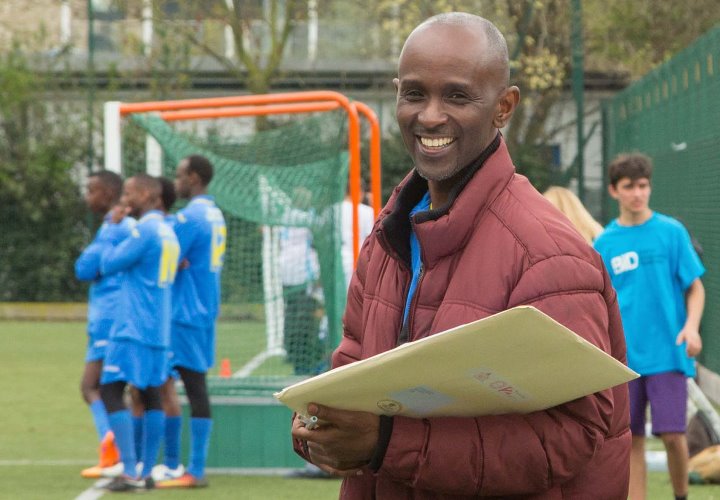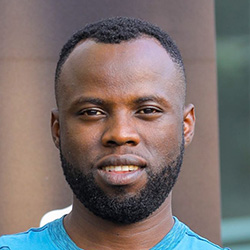

Twenty-eight years ago today, former footballer Eugene Eric Murangwa who, in his early twenties, believed he would achieve great things in his football career.
Young Murangwa was the number one goalkeeper for Rayon Sports, a club with the biggest fan base in Rwanda, when the Genocide against the Tutsi started on April 7, 1994.
He, and most of his immediate family, survived in part thanks to the courage and humanity exhibited by his teammates.
It was April 6 when he and his teammates went to training at Mumena stadium to prepare for Rayon’s next game in the CAF winners’ cup tournament — currently the Confederation of African Football Cup — in the last 16 stage, which was due in two weeks’ time.
"It was just another normal afternoon in Kigali, although a ‘normal’ afternoon in Kigali did include explosions, grenades and shootings,” he recalls.
"Still, I didn’t have the slightest idea that this day would be the last day of my old life, and the worst in Rwandan history, a day to reduce every single Rwandan to tears,” he adds.
Murangwa was at the time one of the club’s most celebrated players, one crucial fact that saved his life.
As Rwanda honours the over one million victims of the 1994 Genocide against the Tutsi, the football veteran not only reflects on what the country went through nearly three decades ago, but also emphasises that he survived for a reason.
"As I reflect on the memories of 28 years ago, I want to stand with all my fellow survivors and to remember our loved ones by making sure that we all survived for a purpose – to make sure our loved ones weren’t lost in vain,” he said via his Twitter page on Wednesday.
"In doing so we have to make sure that what happened to our parents and grand-parents, brothers, sisters, uncles, unties, cousins, nephews, nieces, friends and neighbours, never ever happens to our children,” he added.
Murangwa is the Founder of Ishami Foundation, a charity organization that uses the power of sport and storytelling to build equality, tolerance and lasting peace in Rwanda and the UK. Sport and storytelling, Murangwa says, have the power to influence society in a way that little else does.
‘Ishami’ is a Kinyarwanda word meaning branch, symbolising resilience, recovery and connection, and the Ishami Foundation brings together two of Murangwa’s organisations which are Survivors Tribune and Football for Hope, Peace and Unity.
The organization works with survivors, young people and vulnerable communities, and its activities focus on empowering participants by fostering respect, team spirit, critical thinking and resilience.
Through sports, Ishami Foundation coaches and convenes matches, predominantly for young people, drawing on the sport for social change. During these activities, organisers and participants take time to remember the victims of the Genocide against the Tutsi.
Today, Murangwa resides in London, United Kingdom, where he spends most of his time working on the foundation activities.
He is a recipient of the MBE award, which he was conferred upon during the 2018 Queen’s New Year’s Honours for raising awareness and his educational initiatives about the 1994 Genocide against the Tutsi in U.K. schools.
Member of the most excellent order of the British Empire (MBE) award is given for an outstanding achievement or service to the community.
As a former national team player, Murangwa is a member of the Former Amavubi Players Association (FAPA), a union launched last year with the aim of supporting and advising on football the development in the country.


